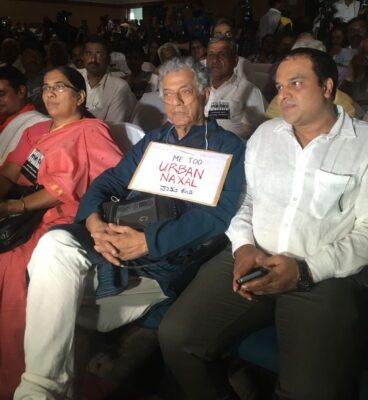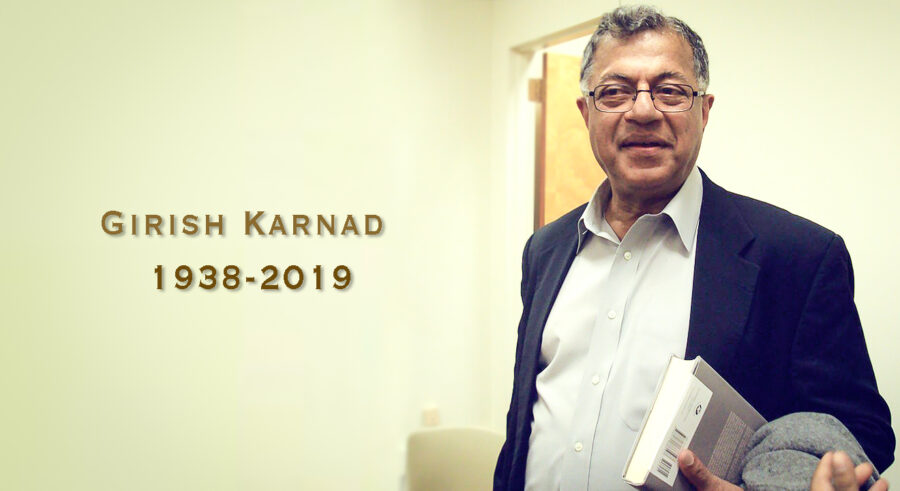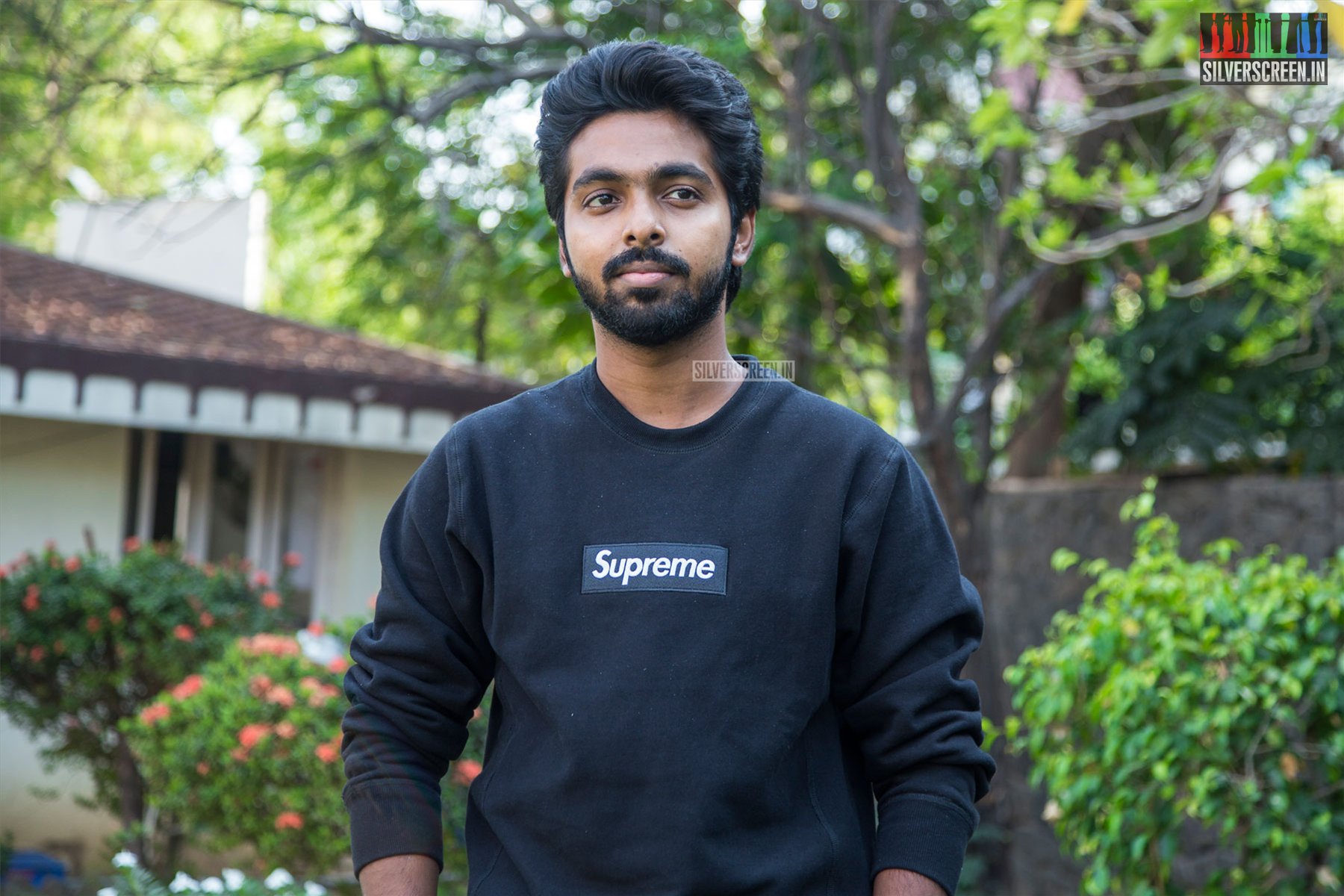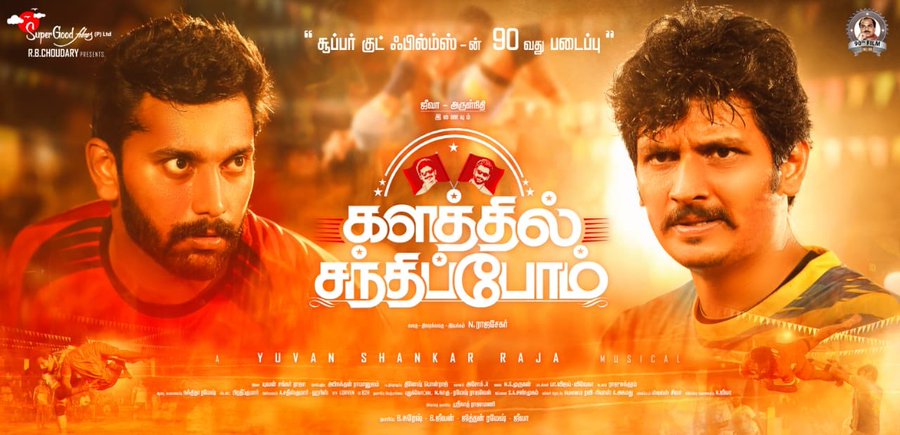Noted actor, director, litterateur and playwright Girish Karnad died today in Bengaluru, aged 81, and is survived by his wife Saraswathy and two children. Karnad won numerous awards for his work in literature and cinema, including the Sangeet Natak Akademi Award, the Padma Bhushan and the Jnanpith, besides many National Film Awards.
************
Even as his body was fighting a battle against age and various ailments in his later years, Girish Karnad’s spirit was alive and kicking. He wore a nasal canula that fed him oxygen, but that did not prevent him from also holding on to placards that read “Not In My Name” and “Me Too Urban Naxal” to protest India’s ruling party. He was a vital part of society and did not hesitate lending a shoulder to a protest or voicing his opinion on what he considered wrong.

Even in death, Mr Karnad, 81, stayed true to his belief system. His last wishes were that there should be no floral procession or visits by VIPs, and that his cremation should be simple. And so, the man who shaped an entire generation’s thinking, and touched many others with his explorations in theatre, television and cinema, went the way he lived — a person who made a deep impact, without making much ado about it.
For many of us raised on Doordarshan and the golden days of Hindi parallel cinema, Mr Karnad was the quintessential gentleman, in most cases. And, when he played baddie, he was so effective at it. Few can forget the menacing Governor Kakarla Satyanarayana Murti of Kaadhalan. Watch a rerun of RK Narayan’s Malgudi Days directed by Shankar Nag, or read the book again, and you can’t imagine anyone else in the role of Swami’s strict father. The series opens with his voice. “Swami….,” he calls, and his tone is enough to let you know what a naughty boy Swami is. He’s probably the only actor who could have pulled off a role where the veshti-wearing father writes a letter showcasing his felicity in English to his son’s Principal while complaining about a teacher who twisted his ear, all the while holding on to his Indian values.
There was little that Mr Karnad did not do. He never dabbled in anything – he immersed himself in all he did, be it writing, acting or being an activist. His son, the celebrated writer Raghu Karnad follows in his footsteps.
Not many may know that he was also responsible for gifting Hindi cinema the great actors Naseeruddin Shah and Om Puri. The actor Satish Shah, known for his humour on screen, tweeted that in an era of conventional chocolate faces, Karnad was responsible for choosing guys “like us.” “We owe him our careers,” he said. This was during Mr Karnad’s stint as director of the Film and Television Institute of India (1974–1975). He also served as chairman of the Sangeet Natak Akademi, the national academy of the performing arts (1988–93).
His plays continue to be read and his films continue to be discussed even today. He wrote the much-venerated Yayati in his 20s, and followed it up with Tughlaq, Hayavadana, and the haunting Nagamandala, among others.
He was the actor and screenwriter of the National Award-winning Kannada film Samskara, and followed it up with gems in Hindi such as Nishaant, Manthan and Swami, in the 1970s. In 1971, he co-directed his first film Vamsa Vriksha with BV Karanth, and went on to bag a National Award for it. He also directed the aesthetic Utsav in Hindi, starring Rekha and Shekar Suman, based on Sudraka’s 2nd Century BC Sanskrit play Mrichakatika. Years later, he would go on to direct the searing Cheluvi, a film about a girl who turns into a tree, and is unable to return to her human form; it won a National Award in the environment category.
His documentaries have been much feted, at the national and international stage.
Recommended
He managed to stay relevant even in the nineties and the aughts – several films with the filmmaker Nagesh Kukunoor such as Iqbal, Dor, 8×10 Tasveer and Aashayein, and the Salman Khan hits Ek Tha Tiger, and Tiger Zinda Hai.
A leading publication was criticised for identifying him as the Tiger Zinda Hai actor while announcing his demise. Would Mr Karnad have minded? Not quite. He had the amazing ability to thrive in whatever environment he was part of, and leave it a better place than what it was when he came in.
With his passing, the nation loses a person with a deep social conscience, among the last of a generation that placed the cause before one’s self, and who fought for freedom of speech and expression till their last breath. The world of art has been left poorer without him.



